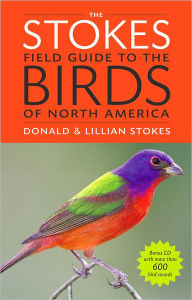What a surprise when birders found a Great White Pelican, in J.N. Ding Darling NWR today. Normally found breeding from southeastern Europe through Asia and Africa, it is not known where it came from. It was not banded. The female in breeding plumage has orangey skin on its face, the male has pinkish skin, so this bird looks more like it has orangish facial skin and a female. It was discovered in the morning, then spent over an hour soaring over the refuge then settled on a sandbar with the American White Pelicans.
Search This Blog
Showing posts with label J.N. Ding Darling NWR. Show all posts
Showing posts with label J.N. Ding Darling NWR. Show all posts
Sunday, February 28, 2016
Friday, February 19, 2016
Stokes Birding and Photography Tour
Roseate Spoonbills
White Pelican
Reddish Egret
Pied-billed Grebes
American Alligator
Brown Pelican chasing Double-crested Cormorant
At our annual Stokes Birding/Photography fundraiser tour for J. N. Ding Darling NWR, I had a tram full of photographers who I taught and we all had wonderful photo ops. Here are some of the photos I took with the Canon SX 50 camera. The tour occurs on friday when the refuge is closed to the public so we all had the refuge to ourselves. All funds raised go to the refuge.
Thursday, January 07, 2016
Yellow-throated Warbler Beauty!
This beautiful Yellow-throated Warbler (Setophaga dominica) was in J.N. Ding Darling NWR yesterday and found a snack of a tasty caterpillar. This warbler breeds in much of the lower 2/3 of the eastern part of the country and winters in FL and parts of the Gulf Coast. There are two subspecies. Setophaga dominica dominica is found from s.e. NJ-s. FL and has variable amounts of yellow in the supraloral area. Setophaga dominica albilora is in the rest of the range and has a usually white supraloral area. So this bird is most likely of the subspecies dominica. Yellow-throated Warblers only winter in very south FL, not usually breed there. So this bird may be a winter visitor, like us! Look for them in your area and if you visit FL in winter! For complete information on the subspecies of birds, see our The Stokes Field Guide to the Birds of North America, a must-have for birders who want to be informed.
Subscribe to:
Posts (Atom)
















